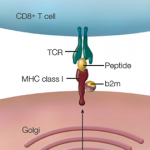Future Research
Going forward, Dr. Manasson and colleagues emphasize the need for further research to close the gaps that persist in better understanding the interactions between gut microbiota, genetics and susceptibility of postinfectious chronic inflammatory conditions.
Saying these findings contribute to a better understanding of the environmental factors important to the development of various types of chronic arthritis, Dr. Steere emphasizes they do not yet affect how these conditions are diagnosed or treated.
“The long-range hope is that tests can be developed to help us identify a patient with reactive arthritis and that treatment directed against causative organisms, as well as suppression of immune responses, may be more effective therapy,” he says.
Mary Beth Nierengarten is a freelance medical journalist based in Minneapolis.
Resources
- Manasson J, Shen N, Garcia Ferrer HR, et al. Gut microbiota perturbations in reactive arthritis and postinfectious spondyloarthritis. Arthritis Rheumatol. 2018 Feb;70(2):242–254.



